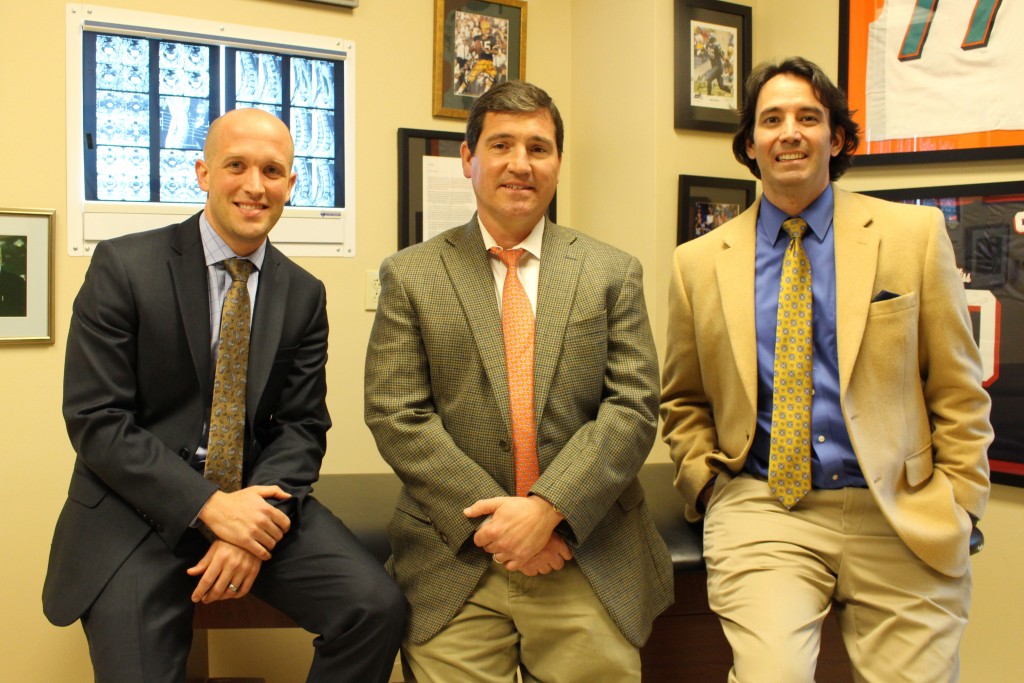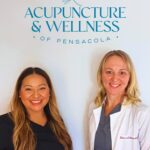Physicians at Andrews Institute for Orthopaedics & Sports Medicine utilize leading edge treatment options for patients that are grounded in evidence-based research. One of the emerging orthopaedic treatment options for patients includes the use of regenerative medicine; treatments that use a patient’s own stem cells or blood to enhance the healing process.
While stem cell technologies and point of care blood products are both currently used at Andrews Institute, both are still experimental and require additional research.
“We are making sure that there is evidence around safety and effectiveness before we make claims or advertise about regenerative medicine because at this point it needs more studying since it’s experimental,” said Dr. Adam Anz. “We are also staying compliant with the recommendations from the Food and Drug Administration (FDA).”
Current studies are being conducted at the Andrews Institute Regenerative Medicine Center through the Andrews Research & Education Foundation (AREF) with the goal that the research will help physicians give clearer evidence to patients on the procedures offered.
“Research is at the core of our mission at Andrews Institute and we believe that research is the best avenue to safely advance new medical technology,” said Dr. Joshua Hackel. “Research allows us to identify effective treatment options for our patients. AREF leads research and education initiatives and provides public service programs that generate new techniques, technology and methodologies that are implemented in direct patient care.”
The FDA has not moved to regulate or interfere with physicians using bone marrow aspirate concentrate (BMAC) and platelet rich plasma (PRP) clinically. For this reason, these regenerative medicine procedures used at Andrews Institute do not currently require FDA approval for the way they are being used clinically. Research at Andrews Institute is presently being conducted on the effectiveness of regenerative medicine for the treatment of ligaments, cartilage and osteoarthritis.
While regenerative medicine procedures are available at Andrews Institute, physicians make sure to explain all possible treatment options to the patient.
“First the diagnosis is discussed with the patient to make sure they understand the problem,” said Dr. Hackel. “Next the appropriate standard or advanced non-surgical and surgical options are discussed. When traditional options have been exhausted, we discuss appropriate regenerative medicine treatment options.”
Andrews Institute physicians actively promote transparency when it comes to the experimental procedures.
“When patients ask to have stem cell procedures, I have a long discussion with them about what we know, but also highlight what we don’t know about these technologies,” said Dr. Anz.
PRP is a point of care blood product commonly used by Andrews Institute physicians.
“Our bodies circulate platelets in the blood,” said Dr. Brett Kindle. “When an injury occurs, platelets aggregate to that site and stimulate and regulate the healing process. When we inject PRP into the site of injury or pain, those platelets stimulate healing or a robust pain relieving response.”
Several clinical trials at the Regenerative Medicine Center at Andrews Institute have focused on researching the effectiveness of PRP.
“PRP has been supported by several years of research,” said Dr. Kindle. “It has been shown to be very safe and often times very effective depending on the injury. I feel comfortable recommending this treatment option to patients because of the high quality research we are doing at Andrews Institute.”
BMAC is one of the stem cell technologies that is currently offered at Andrews Institute, and includes harvesting stem cells from the patient’s bone marrow. Current research is being conducted on bone marrow aspirate technologies to prove its effectiveness on knee arthritis.
“We currently have a study where we are comparing bone marrow aspirate concentrate to a blood product for knee pain to see which one out-performs the other,” said Dr. Anz. “While we offer BMAC to treat knee joint degeneration when patients request it, I let patients know that it is in their best interest to wait until we finish the current study so we have more evidence on which treatment option is better.”
While Andrews Institute physicians offer regenerative medicine procedures, they are experimental and currently not covered by insurance. However, Andrews Institute physicians are confident that the future of orthopaedics and sports medicine involves the use of regenerative medicine, and make it a focus for current research at Andrews Institute.
“I think Dr. James Andrews has great vision,” said. Dr. Anz. “When I first visited the campus, Dr. Andrews and I were discussing what we were excited about, and he said that the first great advancement in sports medicine was the arthroscope, and that the second is going to be regenerative medicine.”
For more information about regenerative medicine treatment options at Andrews Institute, or to schedule an appoint, visit AndrewsInstitute.com or call 850.916.8700.











